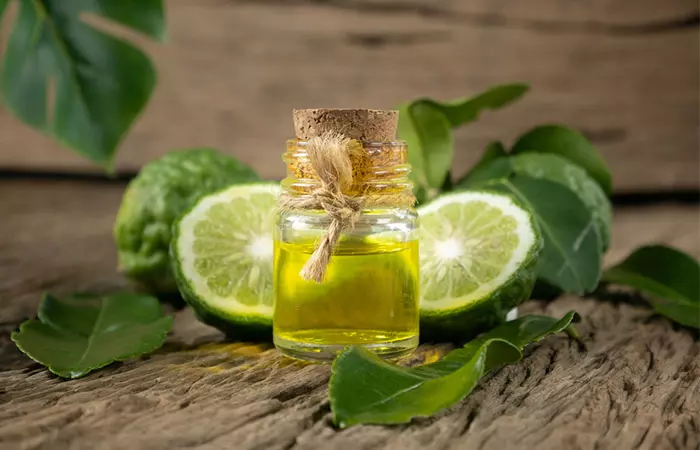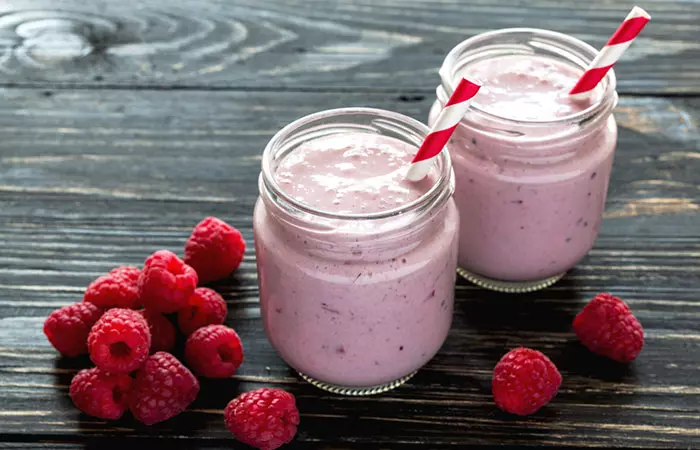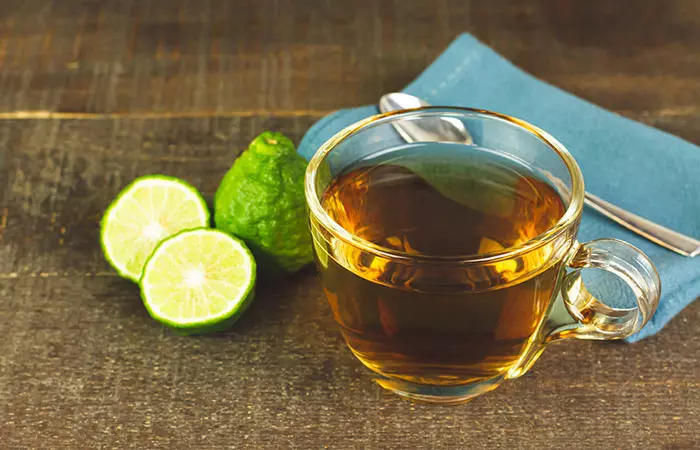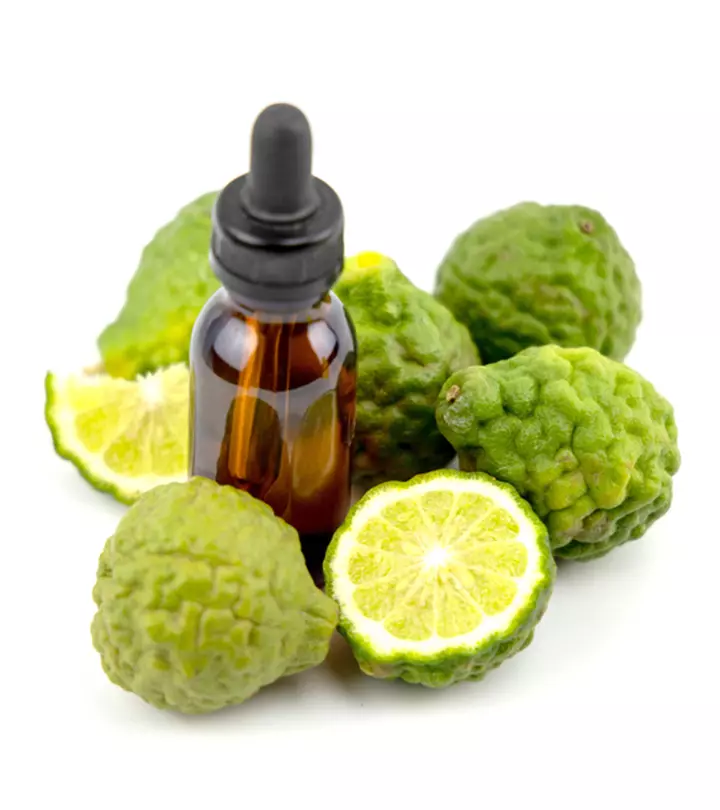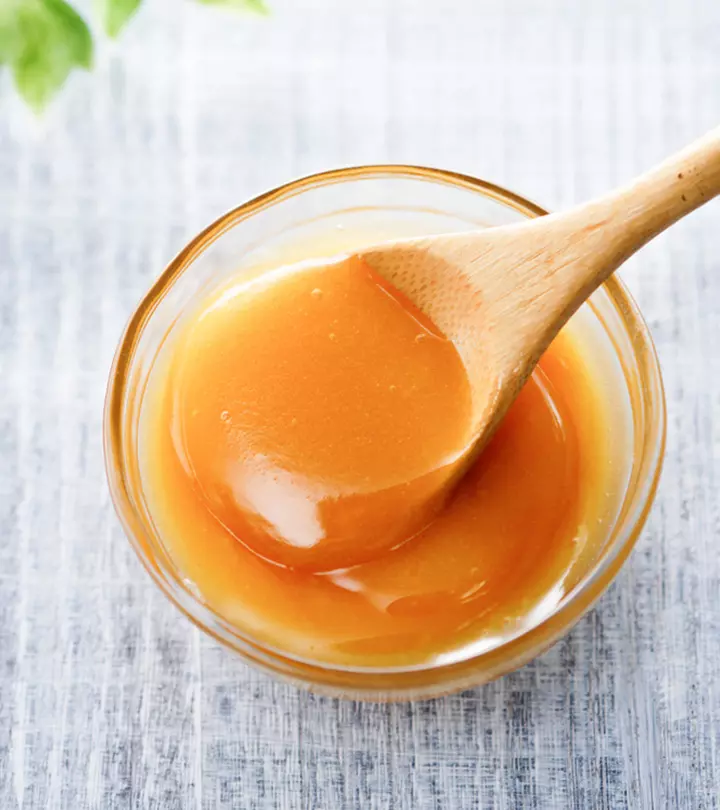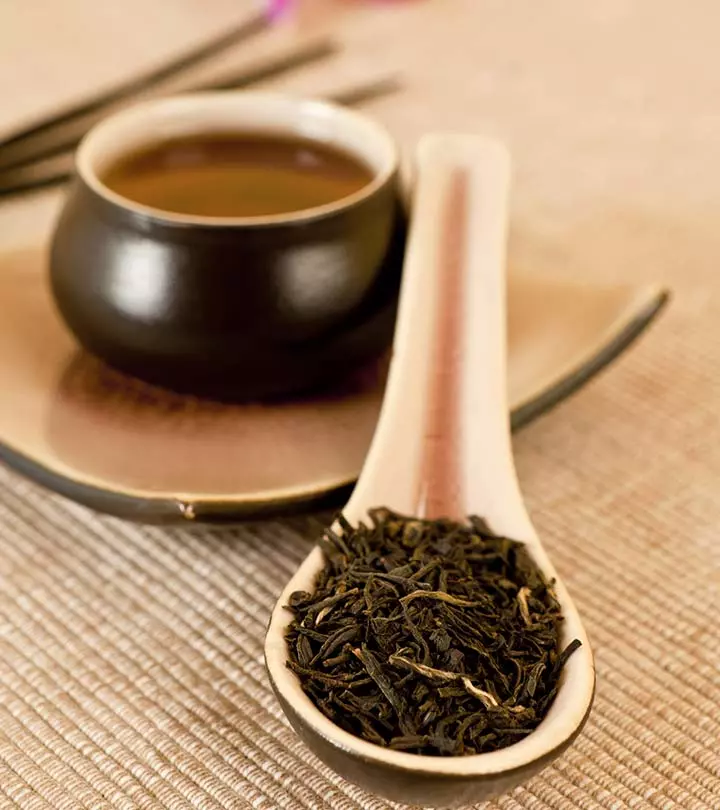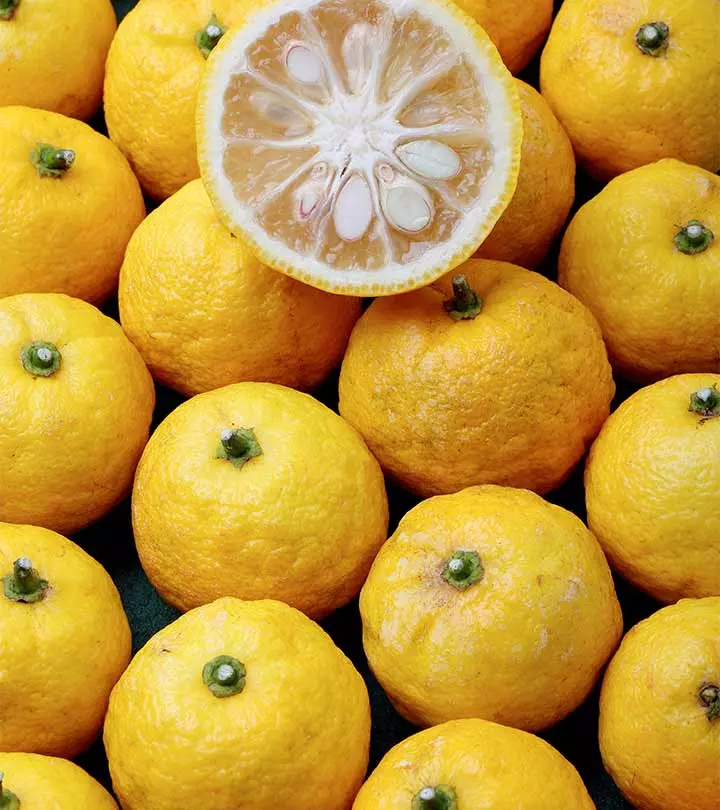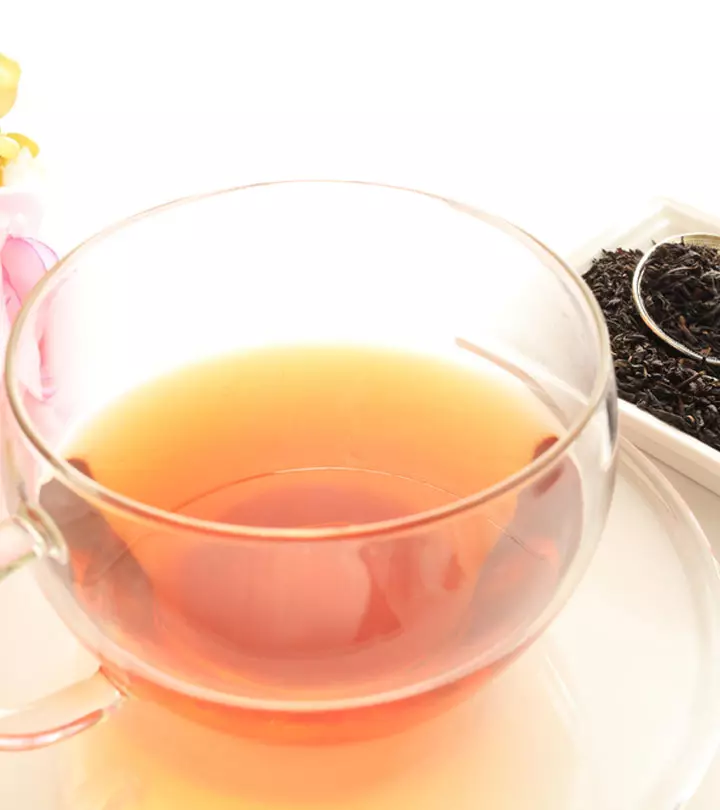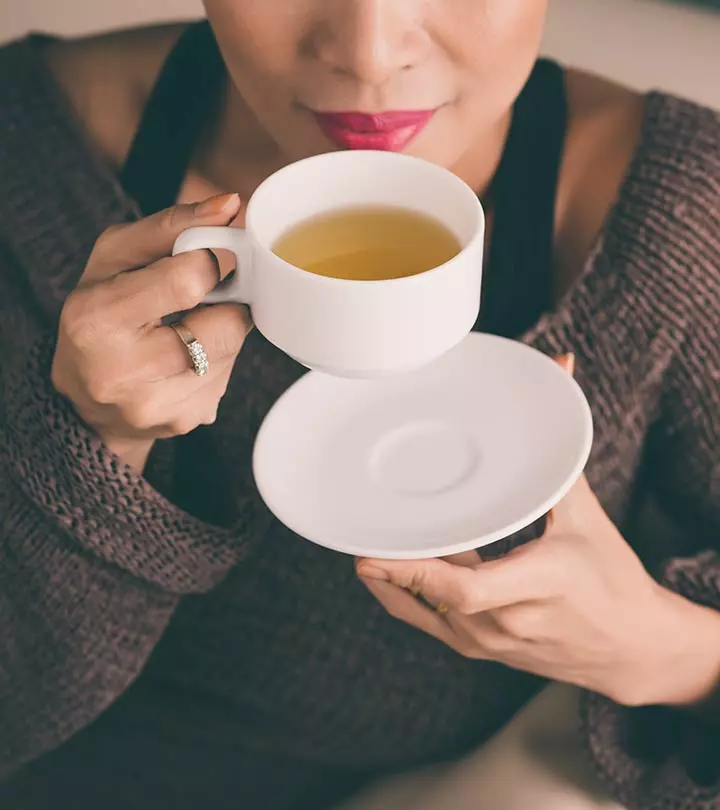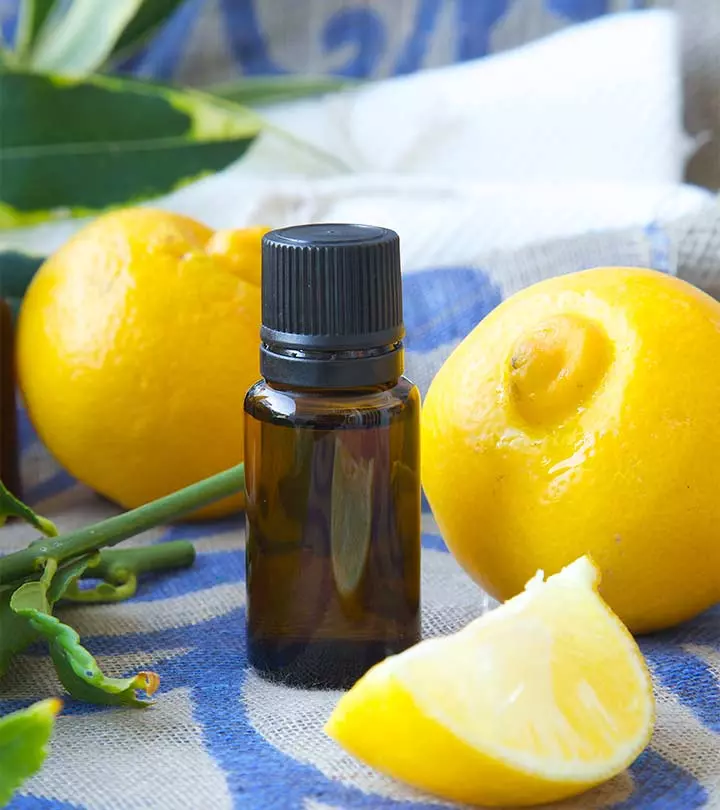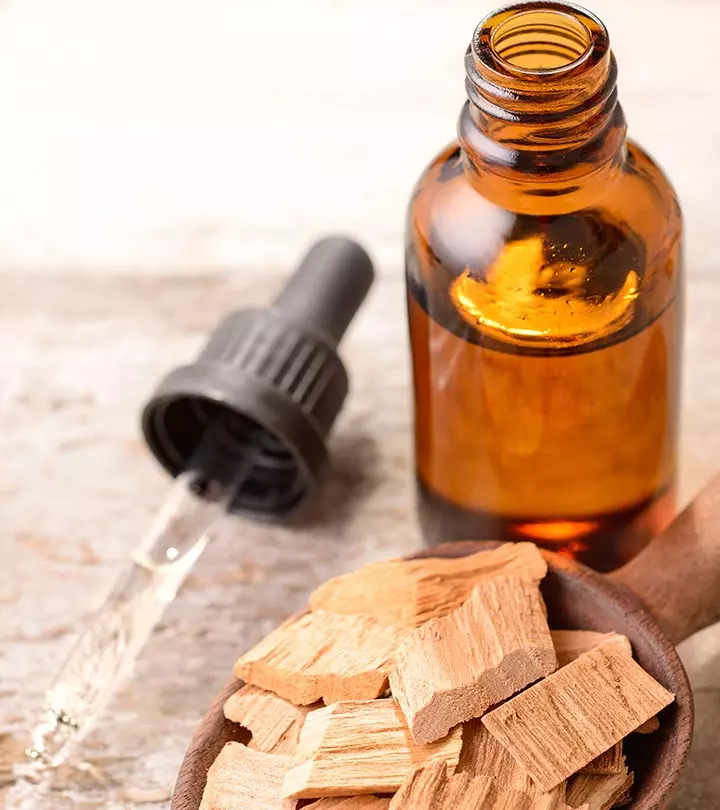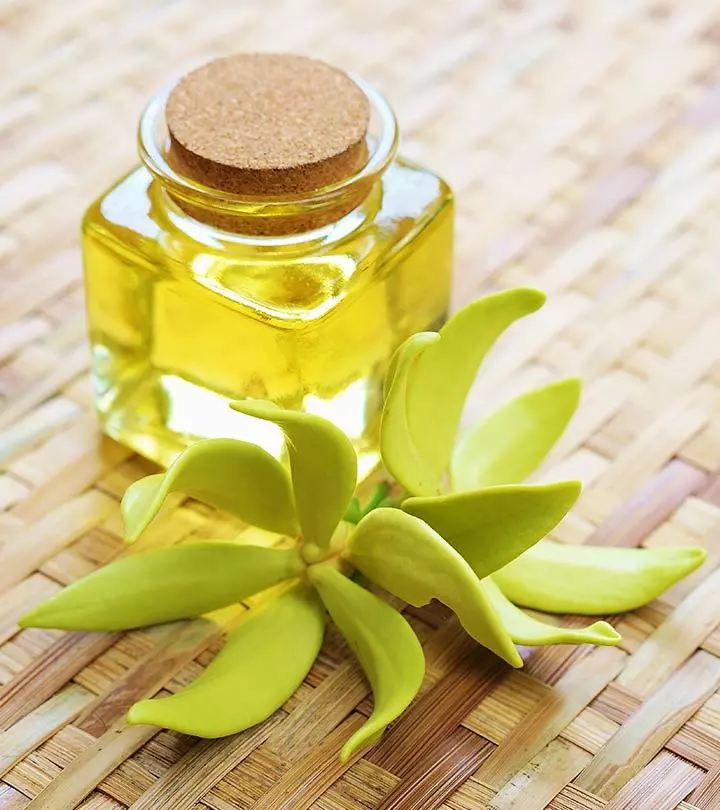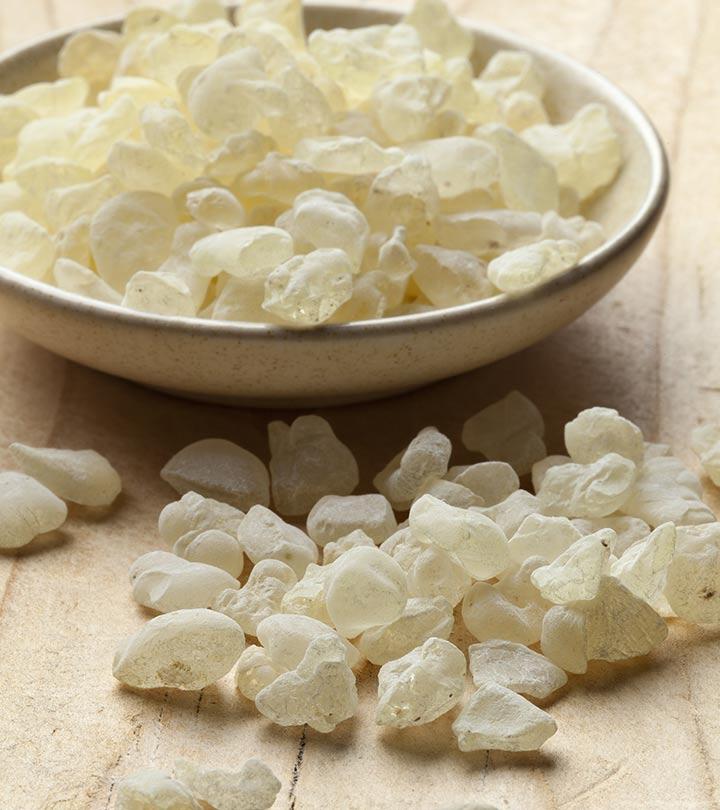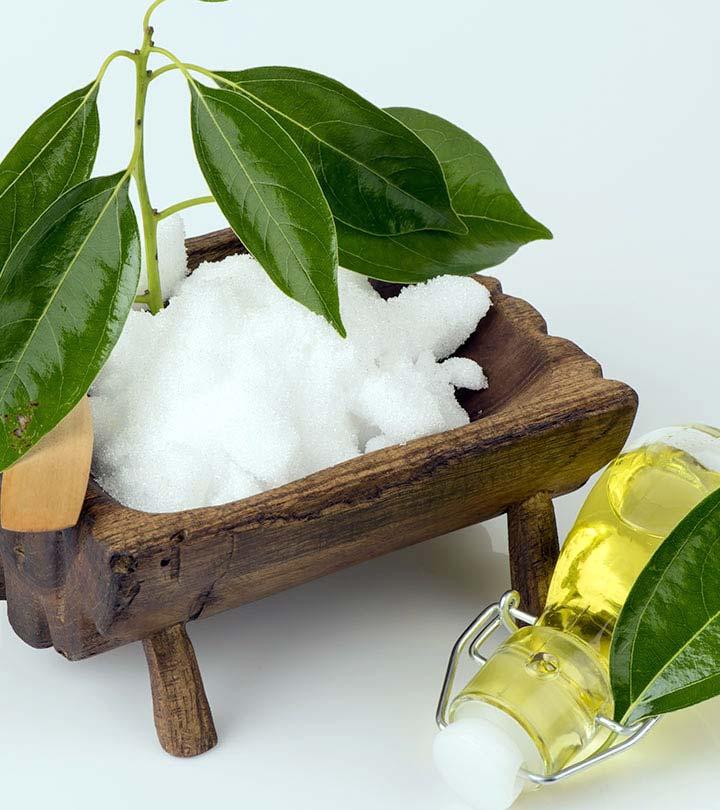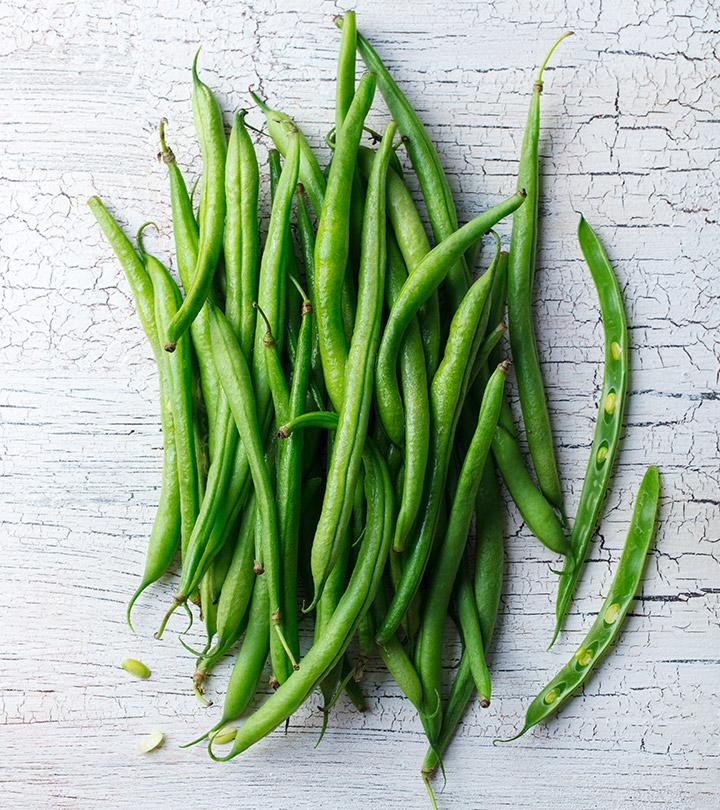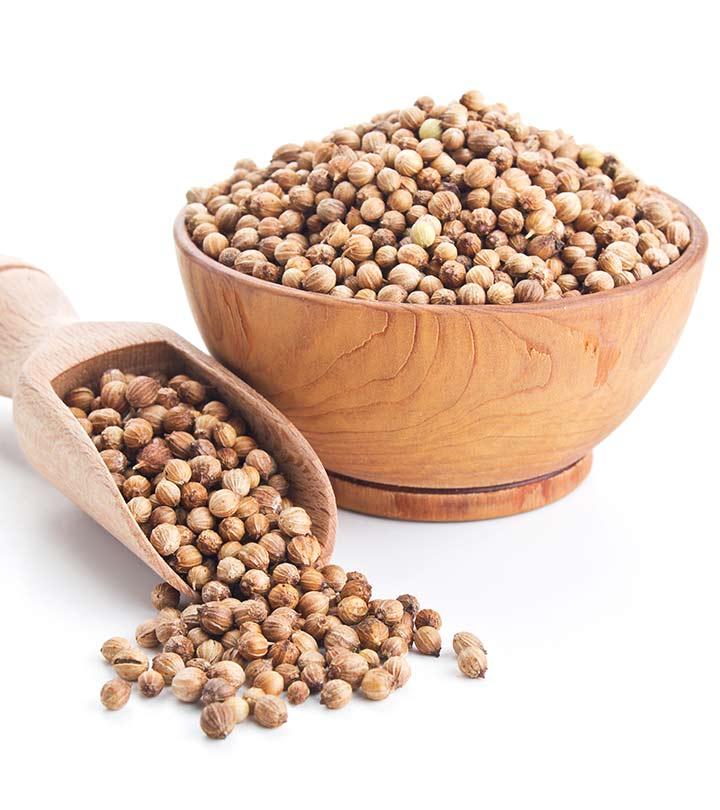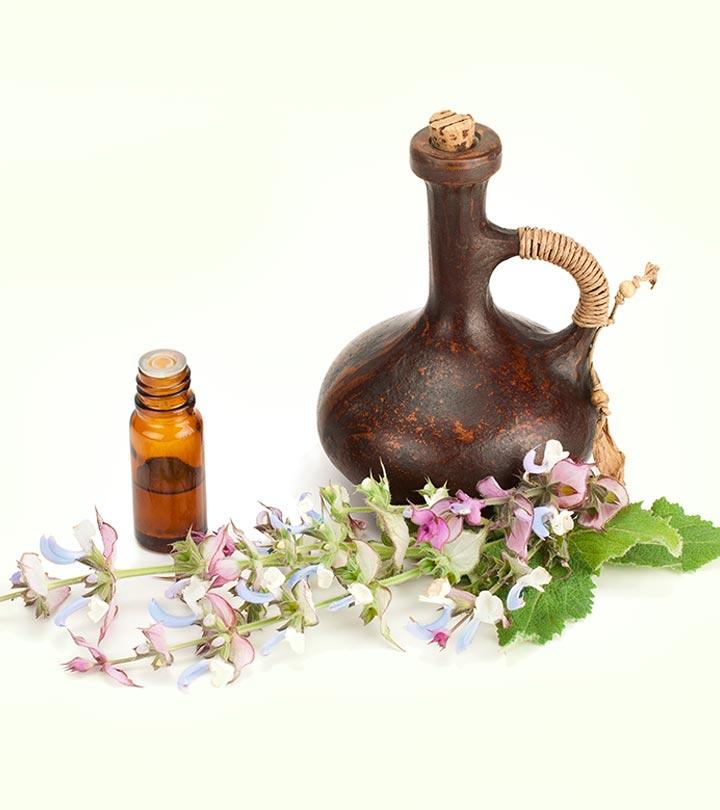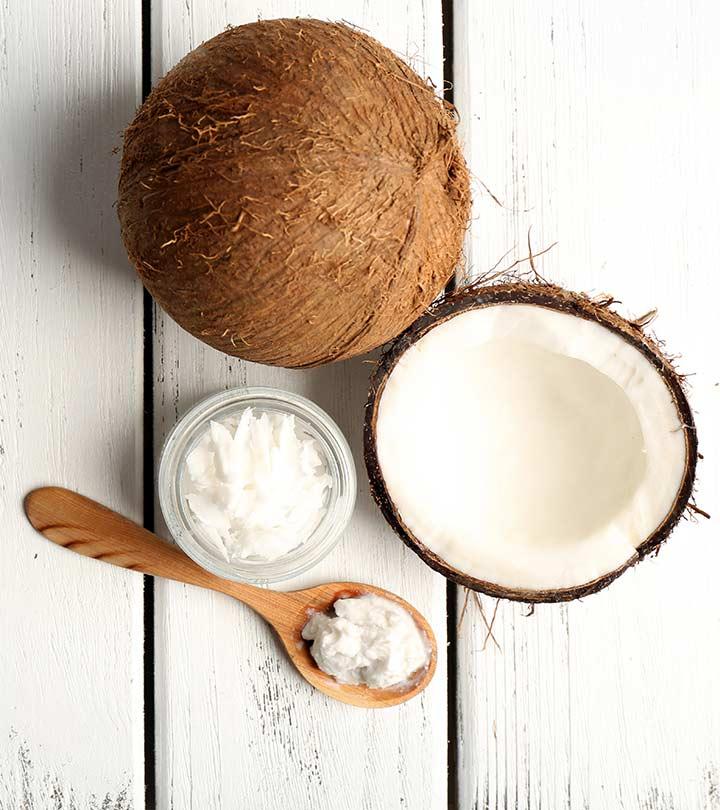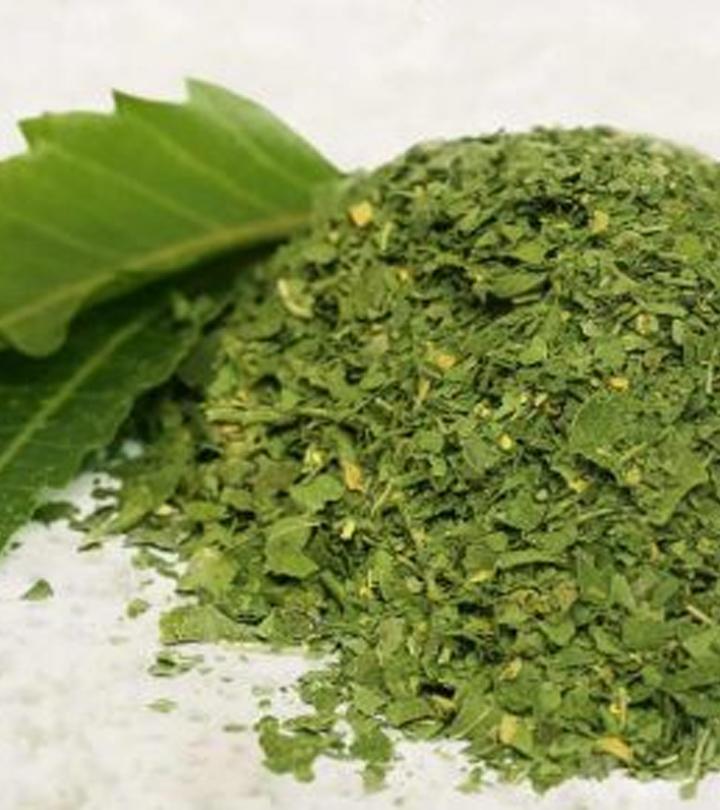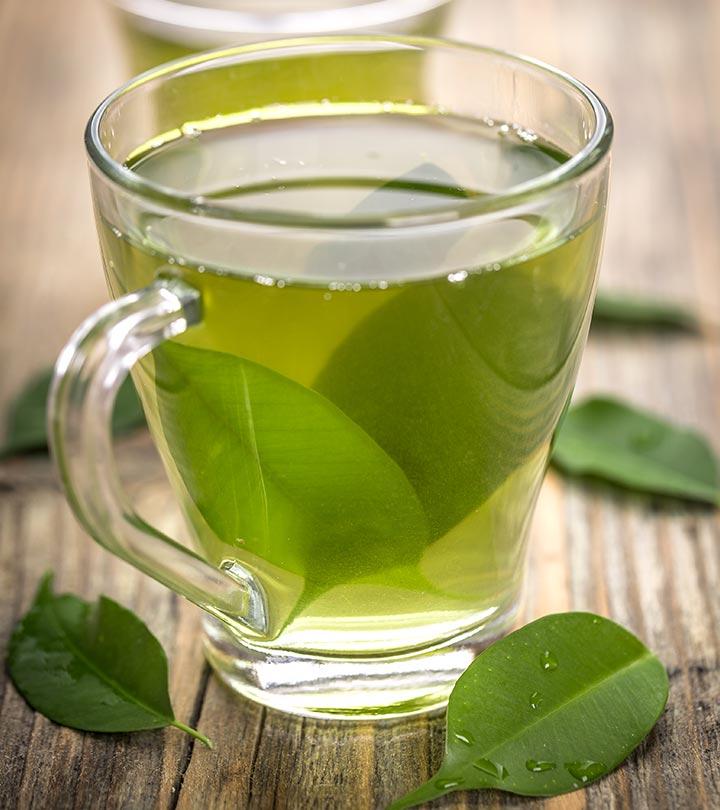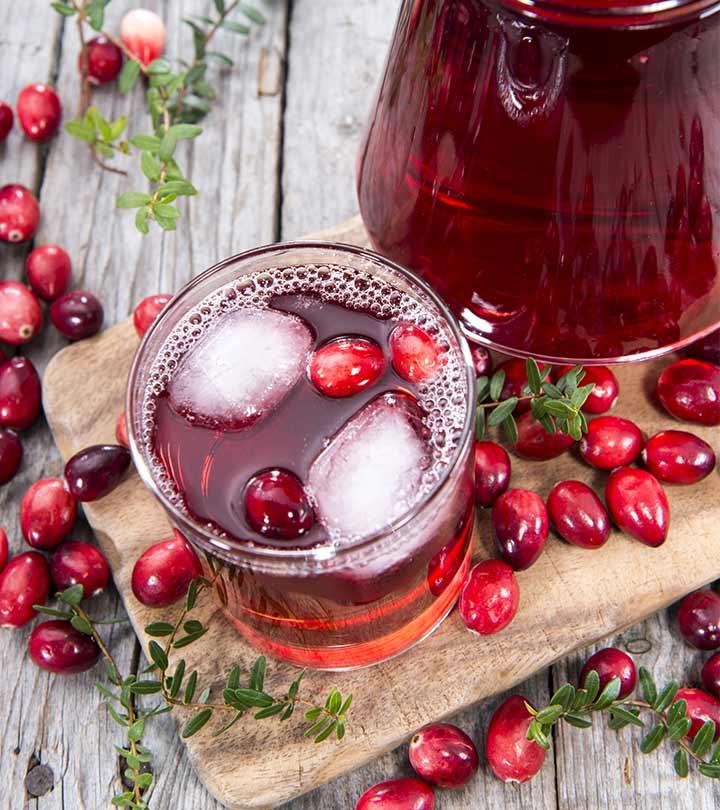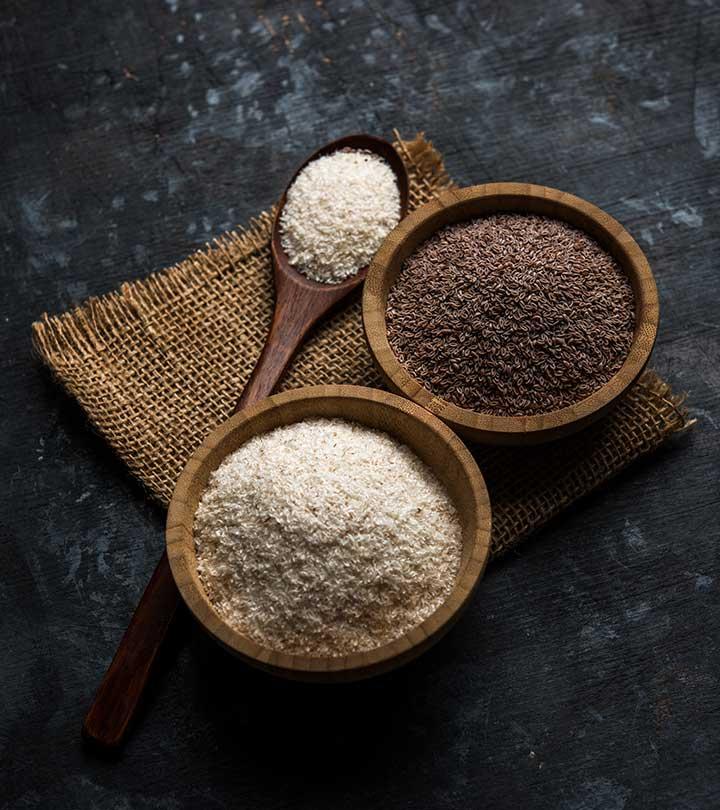Bergamot Fruit: Health Benefits, Uses, Side-Effects, & More
Boost your physical fitness and mental health with this citrusy and delicious fruit.
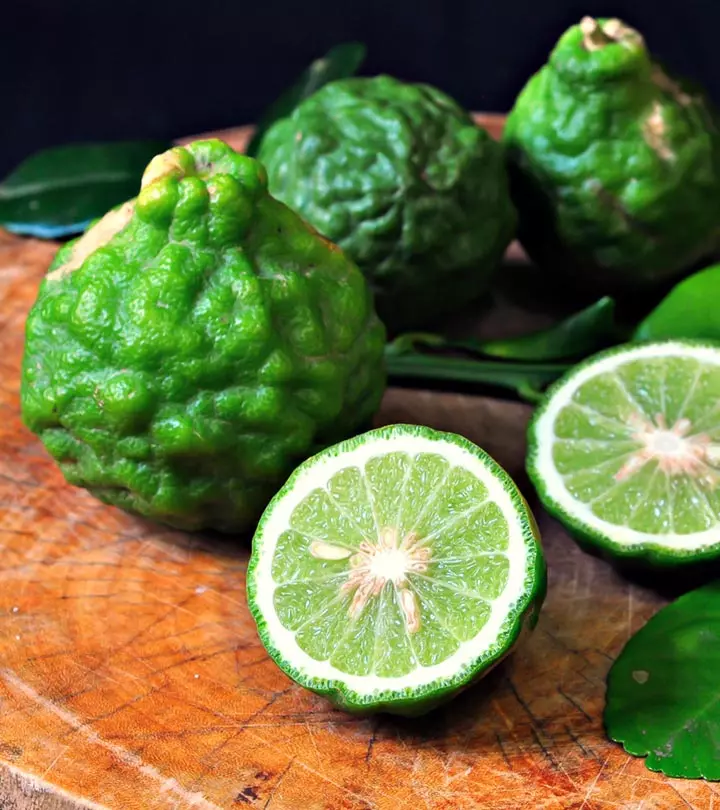
Image: iStock
Have you ever had Earl Grey tea? Do you enjoy the hint of its citrusy flavor? Well, then you’ve got a taste of the bergamot fruit already! Bergamot fruit is the aromatic pear-shaped citrus cousin of oranges, that looks more like lime. Besides tea, it also finds wide use in foods, perfumes, cosmetics, and more. It is only recently that scientific research has discovered important components in bergamot fruit derivatives with antioxidant and anti-inflammatory properties. In this article, we explore the origin and health benefits of bergamot, along with some of its popular uses and potential side effects.
 Know Your Ingredient: Bergamot Fruit
Know Your Ingredient: Bergamot FruitWhat Is It?
A pear-shaped Mediterranean citrus fruit. It is a type of orange that looks like lime and tastes bitter when eaten raw.
What Are Its Benefits?
It has antioxidant properties that may help reduce the risk of metabolic syndrome. It can lower cholesterol levels, boost heart health and the immune system, relieve pain, and reduce mental stress.
Who Can Use It?
Anyone can consume it in moderation quantity. The essential oil can be used in diluted quantities by everyone except those with citrus allergies or sensitive skin issues.
How Often?
Up to 1000 mg of extracts or supplements per day by mouth for 4-12 weeks.
Caution
Using undiluted essential oil on the skin could lead to skin tanning and rashes. Overconsumption of bergamot extract may cause heartburn, muscle cramps, caffeine jitters, or reduced iron absorption
In This Article
What Is Citrus Bergamot?
What is Bergamot? It is a Mediterranean citrus fruit primarily grown and found in Calabria, South Italy. The fruit of the citrus bergamia plant, bergamot fruit, is a type of orange. Almost the same size as oranges, bergamots closely resemble lime in appearance. They are pear-shaped, green in color when raw, and yellow when ripe. They have a very distinct citrusy fragrance and are too bitter to be eaten raw. They are usually enjoyed in tea preparations, preserves, or marmalades.
While bergamot is known as a hybrid of orange, researchers vary in their opinions about its origin. While some state bergamot as a hybrid between bitter orange and citron, others believe it comes from a combination of bitter orange and sweet lime, or bitter orange and lemon (1), (2).
Italians use bergamot oil, juice, and fruit extract to treat various health concerns related to digestion, skin, muscle pain, and fevers. With recent research, these health benefits and effects are attributed to the presence of important active compounds in bergamot fruit and its derivatives. Let’s understand this in detail further ahead.
 Trivia
TriviaUses And Effectiveness
Cold-pressed bergamot essential oil (BEO) is extracted from the bergamot fruit peel and the left-over fruit is used to squeeze out the bergamot juice. The remaining fruit scraps are then used for animal feed.
Bergamot fruit is commonly used in the beauty industry for its benefits in skin care, in the culinary world for its unique flavor, and in medicinal practices for its potential healing properties.
- Bergamot essential oil is widely used in the cosmetic industries as a key ingredient in perfumes, body lotions, and soaps.
- It is also used in the food industry as a flavoring agent for various teas and pastries.
- Its antiseptic and antimicrobial properties make it useful in the pharmaceutical industry as well.
Studies suggest that bergamot oil is rich in active plant compounds called furocoumarins, particularly bergamottin. The whole fruit and juice, on the other hand, are high in flavonoidsi A group of natural substances found in many plant-based foods with anti-inflammatory and disease-fighting properties. like naringin and hesperetin (3). In all these various forms, bergamot seems to have certain significant effects on your overall well-being.
- Mood-relaxing Effect
Bergamot essential oil has been widely used in aromatherapy, especially due to its mood-balancing effects. Several studies suggest the potential ability of bergamot oil to reduce stress and help you feel calm and relaxed (4), (5).
- Pain-relieving Effects
Studies also suggest that bergamot fruit may potentially help with pain relief by affecting the nerves’ sensitivity to pain (6). It could also be used as a complementary addition to other pain-relieving medicines.
- Antibacterial Effects
Studies have found that components in bergamot essential oil might have antimicrobial and antifungal properties. It is particularly effective against Escherichia coli O157, Campylobacter jejuni, Bacillus cereus, Listeria monocytogenes, and Staphylococcus aureus, and dermatophytes (7).
Few other studies have substantiated the potentially effective role of bergamot oil against bacterial and fungal infections (8), (9), (10). When the vapors of lemon, orange, and bergamot were tested for their antimicrobial activities against common food pathogens, bergamot essential oil, and its component linalool were found to be the most effective (11).
Furthermore, bergamot is widely studied for its potent antioxidant and anti-inflammatory properties and other health benefits as detailed below.
Health Benefits Of Bergamot
Recent research shows that different components in bergamot essential oil, juice, and rind extracts showcase different beneficial effects on your overall well-being. Some of the ways in which bergamot benefits you include:
- Rich In Health-boosting Antioxidants
Bergamot is rich in flavonoids and polyphenols, which are compounds known for their antioxidative properties (3), (12), (13), (14). They help get rid of the toxic free radicals in your body by absorbing and neutralizing them (15). A mix of flavonoids from bergamot and orange juices has shown potential in preventing oxidative cell injury and lung cell damage (16).
- May Have Anti-inflammatory Properties
Animal studies have implicated the promising role of the bergamot fruit, its juice, and oil in supporting the body’s natural anti-inflammatory response (3), (17). Bergamot extracts have also shown potential in reducing inflammation experienced during inflammatory bowel disease (18). Chronic inflammation often leads to the development of long-term diseases like rheumatoid arthritisi A chronic autoimmune and anti-inflammatory disease that affects many joints at once and causes swelling and pain. , inflammatory bowel disease, multiple sclerosisi An autoimmune disease that affects the central nervous system (brain, spinal cord, and optic nerves). , and also psoriasisi A chronic autoimmune skin condition that leads to the formation of itchy, scaly patches and skin inflammation. .
- May Reduce Risk Of Metabolic Syndrome
Studies suggest that bergamot orange has the potential to help alleviate the harmful side effects of metabolic syndrome by lowering triglycerides, LDL cholesterol, and blood sugar levels (19), (20). A study on patients with confirmed non-alcoholic fatty liver disease (NAFLD) and metabolic syndrome, when given bergamot polyphenolic extracts twice a day, reported a visible reduction of hepatic fat (14). Research also suggests that food supplements with a full spectrum of bergamot juice components might be effective in reducing weight and risks of atherosclerosisi Hardening or narrowing of arteries due to the plaque buildup consisting of fats, cholesterol, and other substances in and on the artery walls. (21).
- May Boost Heart Health
Bergamot tea may help improve your heart health by keeping your cholesterol levels in check (22). The polyphenolsi Naturally occurring organic compounds found largely in fruits and vegetables with disease-fighting properties. found in bergamot, especially the flavanones, may potentially inhibit the enzymes that produce cholesterol in your body (23),(24). High serum cholesterol levels often translate to a greater risk of cardiac health issues. The higher the LDL (bad) cholesterol levels, the more chances of plaque buildup in the arteries, leading to stroke and atherosclerosis.
A study on people with high cholesterol levels who took bergamot extract every day for 6 months, reported a significant decrease in the levels of triglycerides, total, and LDL (bad) cholesterol (25). Further research suggests the promising role of bergamot in enhancing the effects of traditional cholesterol-lowering medications and the development of new nutraceuticals (26), (27).
- May Aid Digestion
Bergamot tea with its flavonoids content seems to help fight digestive tract-related inflammation concerns as well. A study on mice reported the positive effect of bergamot juice in inhibiting the release of inflammatory proteins and reducing diarrhea frequency (19). Few other animal studies have also indicated that bergamot juice might reduce intestinal inflammation and restrict H. pylori bacteria associated with stomach ulcers and pain (28), (29). While these animal studies are promising, further studies are warranted to establish the same for humans.
 Trivia
TriviaHaving explored its range of health benefits, let’s have a look at the potential side effects of citrus bergamot as well.
Health Risks Of Bergamot
The USFDA considers bergamot essential oil “generally recognized as safe” (GRAS) as a food additive (30). While eating, drinking, or smelling bergamot or its derivatives is considered safe, there are a few things you need to keep in mind.
- Overconsumption Might Lead To Cramps
Though most of your tea intake might be limited to 1-2 cups every day, that too of the particular Earl Grey variety, there was one notable case of a man reporting muscle cramps and twitches after consumption of about 4 liters of Earl Grey tea per day (31). While this much intake of tea is highly unlikely, you must be mindful of this potential side effect and avoid excess intake.
- Skin Application Might Cause Rashes
Bergamot oil application on your skin might lead to skin tanning or further adverse effects on exposure to sun or tanning beds. It was about a century ago that physicians first noticed bergamot oil used in perfumes could cause skin rashes (32). It was a photosensitive reaction on exposure of the oil applied skin to sun or UV light. Today, the amount of bergamot allowed by the International Fragrance Association (IFRA) in leave-on skin products is restricted to 0.4% (33). It is therefore important to always dilute the bergamot essential oil with other carrier oils before applying it to your skin.
- Might Interact With Medicines
The furocoumarin bergamottin, found in bergamot essential oil could be potentially harmful when taken with certain medications (3). If you are on prescription medications, consult your doctor about adding bergamot to your diet. You should also report any uneasiness or adverse symptoms on intake of Earl Grey tea.
Once you are mindful of the above, you can enjoy the benefits of bergamot in the following ways.
How To Take Bergamot
Bergamot can be incorporated into your daily routine in various ways.
- Bergamot is often consumed as a tea. You can also find Bergamot essential oil that can be used sparingly and is typically diluted before topical application.
- Some people incorporate its zest or juice into recipes, adding a citrusy twist to dishes. Jared Rydelek, a YouTuber, tastes bergamot juice and says, “It’s got a little bit of a floral taste kind of like lavender. I said so I like this (i).”
- As a dietary supplement, Bergamot is available in capsule form, with recommended dosages varying depending on the product and intended use. Usually, a common dosage falls in the range of 500-1,000 mg per day. But, you should consult a doctor to get an appropriate dosage based on your needs and health condition.
Learn more ways of adding this nourishing citrus fruit to your diet below.
Bergamot Recipes
- Raspberry Almond Smoothie With Bergamot
Ingredients
- Raspberries (frozen) – ¾ cup
- Almond milk (unsweetened) – 1 ½ cups
- Real bergamot extract – 5 drops
- Citrus bergamot capsule contents – 2
- Flaxseed (ground) – 2 tablespoons
- Fresh lemon juice – to taste
- Almonds – ¼ cup
- Coconut oil – 2 tablespoons
Instructions
- Combine all the above ingredients in a high-speed blender.
- Blend until you get a smooth creamy texture.
- Serve in a tall glass or mason jar and enjoy.
- Bergamot Tea
Tea made of bergamot leaves and extracts is commonly known and sold as Earl Grey tea. You can either get the loose tea leaves or ready-to-use tea bags.
Ingredients
- Bergamot tea leaves – 1 tablespoon
- Water – 1 cup
Instructions
- Bring the water to boil in a saucepan.
- Add in the loose tea leaves.
- Let them steep for about 5 minutes.
- Strain and serve.
Infographic: Top 5 Health Benefits Of Bergamot
Bergamot is a delicious fruit commonly found in tea, perfumes, and cosmetics. It contains antioxidants and essential vitamins that reduce oxidative stress and boost heart health among others. We have rounded up the top reasons why you should add this citrus fruit in your diet in the infographic below. Check it out!

Illustration: StyleCraze Design Team
Bergamot fruit is a Mediterranean citrus fruit frequently featured in traditional medicines. This tart, aromatic fruit adds nutritious and delicious notes to your teas, marmalades, and smoothies, to name a few. Citrus bergamot’s benefits come from the health-promoting nutrients it contains, including antioxidants, dietary fiber, vitamins, and minerals. It may help promote heart and digestive health. The bergamot fruit may help reduce the harmful free radicals present in your body and reduce inflammation. However, excessive consumption may lead to cramps or rashes. Hence, limit its consumption and seek medical advice if you experience any side effects.
Frequently Asked Questions
Who should not take bergamot?
People having diabetes or gastrointestinal problems should limit their consumption of bergamot. Also, stop bergamot intake at least two weeks before a scheduled surgery.
Is bergamot a lemon or an orange?
Bergamot is a type of orange. It has a unique sweet aroma and is used for various purposes.
Can bergamot fruit be grown in home gardens?
Bergamot fruit can be cultivated in home gardens but it requires specific conditions and they are not suitable for all regions or climates.
How do you store and preserve bergamot fruit?
You can store bergamot fruit in the refrigerator for a few days to a week and to preserve them, it’s best to juice or zest them and freeze them in an airtight container for later use.
Are there any culinary substitutes for bergamot fruit?
Some commonly used culinary substitutes for bergamot fruit include lemon zest or juice, orange zest, grapefruit zest, and lime zest. The substitutes may not have exactly the same taste but it will be similar to it.
Can the peel or zest of bergamot fruit be used in recipes?
Yes, zest can be used in several recipes like cookies, cake, and salad, and peel is generally infused in beverages, syrups, or sauces to get the citrusy flavor. However, peel or zest can be bitter in taste so it is important to balance the flavor.
Is bergamot fruit seasonal or available year-round?
Bergamot is a seasonal fruit and is generally available in the market in winter between October to March. However, bergamot products like juices, extracts, and essential oil are available all year round.
Key Takeaways
- Bergamot fruits are pear-shaped citrus fruits with antioxidant and anti-inflammatory properties.
- The essential oil extracted from their peel has mood-relaxing and cosmetic applications.
- It may reduce the risk of metabolic syndrome, boost heart health, and aid digestion.
- However, overconsumption of bergamot oil may lead to cramps and rashes.
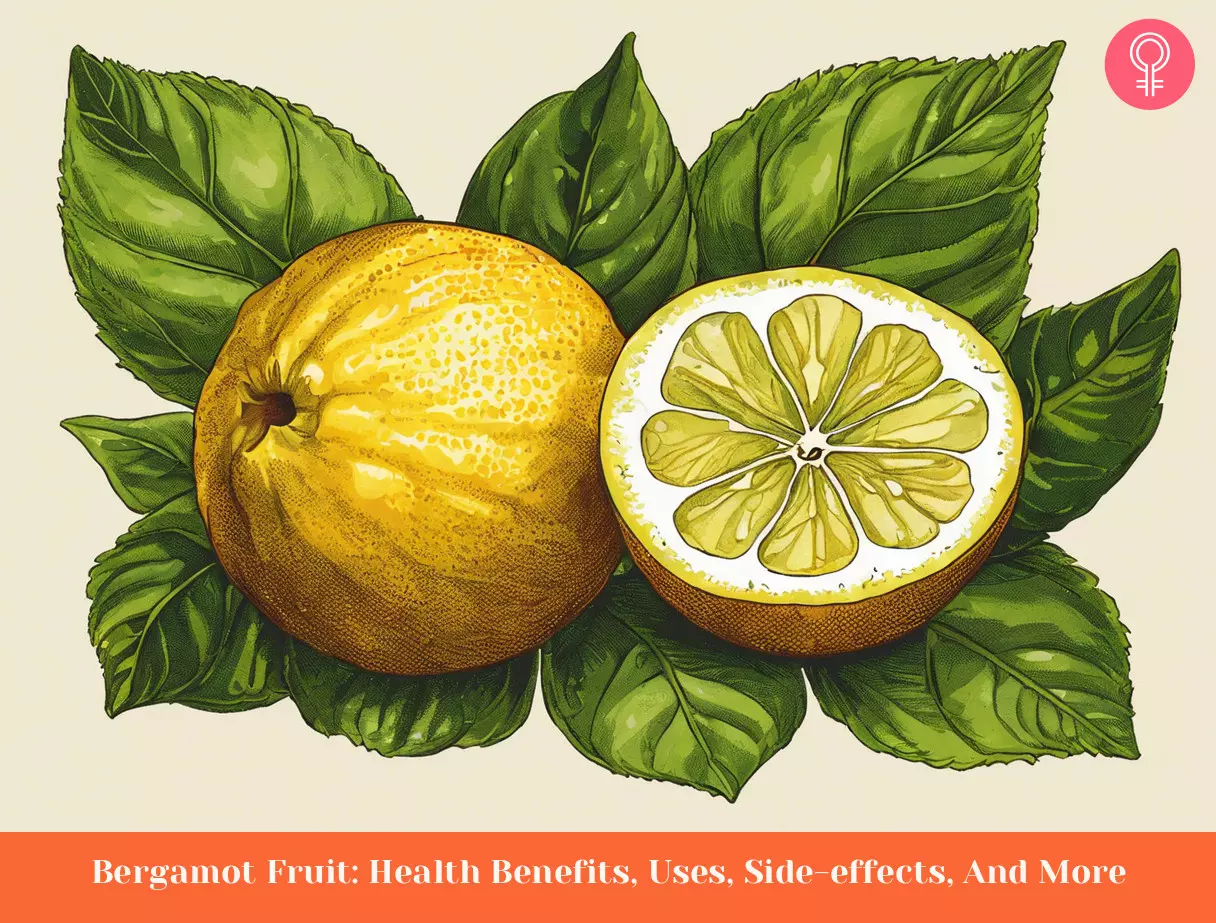
Image: Stable Diffusion/StyleCraze Design Team
Discover the amazing health benefits of bergamot! Check out the video below to learn how this delicious fruit lowers cholesterol levels and protects your heart health.
Personal Experience: Source
StyleCraze's articles are interwoven with authentic personal narratives that provide depth and resonance to our content. Below are the sources of the personal accounts referenced in this article.
i. Fresh Bergamot Review + How to make Earl Grey Tea! – Weird Fruit Explorerhttps://www.youtube.com/watch?v=t1UcdiYtOtg
References
Articles on StyleCraze are backed by verified information from peer-reviewed and academic research papers, reputed organizations, research institutions, and medical associations to ensure accuracy and relevance. Read our editorial policy to learn more.
- The Fascinating History of Bergamot (Citrus Bergamia Risso & Poiteau) the Exclusive Essence of Calabria: A Review
https://pdfs.semanticscholar.org/b40d/a240ced24e10a519d7b767cdd1611cb278dc.pdf?_ga=2.181487215.930036551.1573659252-1275089062.1570725958 - Phylogenetic origin of limes and lemons revealed by cytoplasmic and nuclear markers
https://www.ncbi.nlm.nih.gov/labs/pmc/articles/PMC4817432/ - Anti-Inflammatory Activity of Citrus bergamia Derivatives: Where Do We Stand?
https://www.ncbi.nlm.nih.gov/pmc/articles/PMC6274179/ - Effects of bergamot ( Citrus bergamia (Risso) Wright & Arn.) essential oil aromatherapy on mood states parasympathetic nervous system activity and salivary cortisol levels in 41 healthy females
https://pubmed.ncbi.nlm.nih.gov/25824404/ - Bergamot (Citrus bergamia) Essential Oil Inhalation Improves Positive Feelings in the Waiting Room of a Mental Health Treatment Center: A Pilot Study
https://pubmed.ncbi.nlm.nih.gov/28337799/ - Neuropharmacology of the essential oil of bergamot
https://pubmed.ncbi.nlm.nih.gov/20093169/ - Bergamot (Citrus bergamia Risso et Poiteau) essential oil: Biological properties cosmetic and medical use. A review [2012]
https://www.ncbi.nlm.nih.gov/pmc/articles/PMC4345801/ - Citrus bergamia essential oil: from basic research to clinical application
https://www.frontiersin.org/articles/10.3389/fphar.2015.00036/full - The mechanism of action of a citrus oil blend against Enterococcus faecium and Enterococcus faecalis
https://sfamjournals.onlinelibrary.wiley.com/doi/full/10.1111/j.1365-2672.2008.04102.x - In vitro activity of Citrus bergamia (bergamot) oil against clinical isolates of dermatophytes
https://academic.oup.com/jac/article/59/2/305/725087 - In vitro activity of bergamot natural essence and furocoumarin-free and distilled extracts and their associations with boric acid against clinical yeast isolates
https://academic.oup.com/jac/article/55/1/110/777045 - The effect of lemon orange and bergamot essential oils and their components on the survival of Campylobacter jejuni Escherichia coli O157 Listeria monocytogenes Bacillus cereus and Staphylococcus aureus in vitro and in food systems
https://sfamjournals.onlinelibrary.wiley.com/doi/10.1111/j.1365-2672.2006.03035.x - Antioxidant and Antisenescence Effects of Bergamot Juice
https://pubmed.ncbi.nlm.nih.gov/30116497/ - Citrus bergamia risso & poiteau juice protects against renal injury of diet‐induced hypercholesterolemia in rats
https://onlinelibrary.wiley.com/doi/abs/10.1002/ptr.2971 - The Hepatic Effects of Citrus Bergamot Polyphenol Fraction (BPF) on Patients with Non-alcoholic Fatty Liver Disease and Metabolic Syndrome
https://www.lipidjournal.com/action/showPdf?pii=S1933-2874%2815%2900171-3 - Citrus fruits as a treasure trove of active natural metabolites that potentially provide benefits for human health
https://www.ncbi.nlm.nih.gov/labs/pmc/articles/PMC4690266/#CR47 - Flavonoid Fraction of Orange and Bergamot Juices Protect Human Lung Epithelial Cells from Hydrogen Peroxide-Induced Oxidative Stress
https://www.hindawi.com/journals/ecam/2015/957031/ - The anti-inflammatory and antioxidant effects of bergamot juice extract (BJe) in an experimental model of inflammatory bowel disease
https://www.sciencedirect.com/science/article/abs/pii/S0261561414002933?via%3Dihub - Bergamot (Citrus bergamia Risso) fruit extracts and identified components alter expression of interleukin 8 gene in cystic fibrosis bronchial epithelial cell lines
https://bmcbiochem.biomedcentral.com/articles/10.1186/1471-2091-12-15 - Hypolipemic and hypoglycaemic activity of bergamot polyphenols: from animal models to human studies
https://pubmed.ncbi.nlm.nih.gov/21056640/ - Molecular mechanisms of lipid- and glucose-lowering activities of bergamot flavonoids
https://www.sciencedirect.com/science/article/pii/S2213434415300220 - Atherogenic Index Reduction and Weight Loss in Metabolic Syndrome Patients Treated with A Novel Pectin-Enriched Formulation of Bergamot Polyphenols
https://www.researchgate.net/publication/333611220_Atherogenic_Index_Reduction_and_Weight_Loss_in_Metabolic_Syndrome_Patients_Treated_with_A_Novel_Pectin-Enriched_Formulation_of_Bergamot_Polyphenols - Bergamot (Citrus bergamia Risso) Flavonoids and Their Potential Benefits in Human Hyperlipidemia and Atherosclerosis: an Overview
https://pubmed.ncbi.nlm.nih.gov/26156545/ - Molecular mechanisms of lipid- and glucose-lowering activities of bergamot flavonoids
https://www.sciencedirect.com/science/article/pii/S2213434415300220 - Bergamot Reduces Plasma Lipids Atherogenic Small Dense LDL and Subclinical Atherosclerosis in Subjects with Moderate Hypercholesterolemia: A 6 Months Prospective Study
https://pubmed.ncbi.nlm.nih.gov/26779019/ - Bergamot polyphenolic fraction enhances rosuvastatin-induced effect on LDL-cholesterol LOX-1 expression and protein kinase B phosphorylation in patients with hyperlipidemia
https://pubmed.ncbi.nlm.nih.gov/24239156/ - The effect of bergamot on dyslipidemia
https://pubmed.ncbi.nlm.nih.gov/26851838/ - In vitro effect of bergamot (Citrus bergamia) juice against cagA-positive and-negative clinical isolates of Helicobacter pylori
https://pubmed.ncbi.nlm.nih.gov/26220068/ - Anti-inflammatory and Antioxidant Effects of Flavonoid-Rich Fraction of Bergamot Juice (BJe) in a Mouse Model of Intestinal Ischemia/Reperfusion Injury
https://pubmed.ncbi.nlm.nih.gov/27471464/ - CFR – Code of Federal Regulations Title 21
https://www.accessdata.fda.gov/scripts/cdrh/cfdocs/cfcfr/cfrsearch.cfm?cfrpart=182&showfr=1 - Earl Grey tea intoxication
https://www.thelancet.com/journals/lancet/article/PIIS0140-6736(02)08436-2/fulltext - PHYTOPHOTODERMATITIS
http://telemedicine.org/botanica/bot5.htm - Assessment report on Citrus bergamia Risso et Poiteau aetheroleum
https://www.ema.europa.eu/en/documents/herbal-report/draft-assessment-report-citrus-bergamia-risso-et-poiteau-aetheroleum_en.pdf
Read full bio of Dr Archana Batra
Read full bio of Ravi Teja Tadimalla
Read full bio of Payal Karnik





